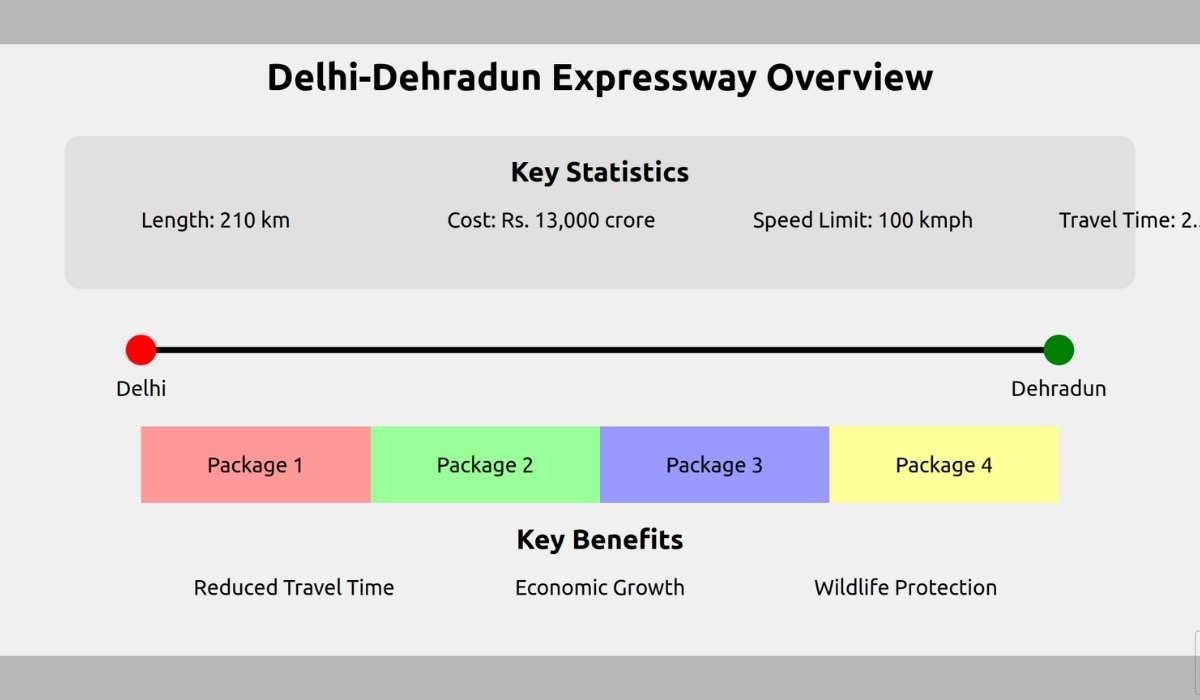The Indian real estate market is undergoing a seismic shift, driven by changing buyer preferences, an expanding economy, and ambitious infrastructure projects. This dynamic landscape presents both challenges and immense opportunities for developers and homebuyers alike.
The COVID-19 pandemic has fundamentally reshaped how Indians view their living spaces. According to Ramesh Ranganathan, CEO of K Raheja Corp Homes, one of India’s leading residential developers, buyers are now prioritizing more spacious homes with dedicated home offices and access to open outdoor areas.
“What the lockdown taught us was the requirement for that extra room,” Ranganathan explains. “People perceive their living spaces differently now, whether it’s within their apartment or having open spaces within their community to walk around.”
Catering to Affluent Buyers’ Refined Tastes
At the high end of the market, the demand for luxury homes continues to surge as India’s elite seek larger living quarters with premium amenities and bespoke finishes. Surprisingly, this rarefied segment has proven resilient even during broader economic downturns.
“The demand for luxury is humongous in India,” says Ranganathan. “These discerning buyers have experienced global service standards, but they want to enjoy that lifestyle at home in India.”
To meet this desire, developers like K Raheja are creating ultra-luxury residential communities with world-class amenities and a focus on delivering exceptional customer experiences. Word-of-mouth recommendations within this rarified social circle are pivotal for driving sales.
Emerging Opportunities in Tier 2 Cities
While India’s megacities like Mumbai and Bangalore remain powerhouses, Ranganathan is optimistic about the residential growth potential in several up-and-coming Tier 2 urban centers. Cities like Ahmedabad, Jaipur, Lucknow, and Bhubaneswar are benefiting from state government initiatives to attract investment and create employment opportunities.
Unlock Your Dream Home Today!
Get personalized real estate insights delivered straight to your inbox.
“These are very interesting trends,” says Ranganathan. “Every state wants to promote investment within their boundaries, and with that, you’ll see a desire and requirement for new homes emerging.”
The Redevelopment Revolution
A uniquely Indian phenomenon, redevelopment projects are transforming the skylines of major cities like Mumbai. As decades-old housing societies seek to redevelop their aging properties, they’re turning to established developers like K Raheja to oversee these complex undertakings.
“Safety is paramount in these redevelopment deals,” cautions Ranganathan. “Societies should prioritize the developer’s reputation for delivery and financial strength to ensure their project reaches completion, even if market conditions fluctuate.”
India’s $5 Trillion Dream
Looking ahead, Ranganathan is enormously bullish about India’s real estate prospects as the nation powers towards its goal of becoming a $5 trillion economy within the next few years.
“With economic growth, you’ll see incredible demand for all types of real estate—residential, commercial, hospitality, healthcare, you name it,” he effuses. “The next twenty years will be even better than the twenty I’ve spent in this industry so far.”
From affluent buyers redefining the meaning of luxury to aspiring families in emerging cities, the Indian real estate market is evolving rapidly. Developers capable of addressing these shifting buyer needs—while delivering quality, transparency and value—will be ideally positioned to capitalize on the unprecedented growth still to come.
The Indian real estate market is experiencing a shift towards more spacious homes with dedicated home offices and access to outdoor areas, driven by changing buyer preferences post-COVID-19.
The pandemic has led buyers to prioritize extra rooms for home offices and a greater need for open spaces within their communities.
Yes, there is a significant demand for luxury homes as affluent buyers seek larger living spaces with premium amenities and bespoke finishes.
Tier 2 cities such as Ahmedabad, Jaipur, Lucknow, and Bhubaneswar are showing strong residential growth potential due to state government initiatives.
Redevelopment projects are transforming major cities like Mumbai, as aging housing societies seek to modernize their properties with the help of established developers.
Societies should prioritize the developer's reputation for delivery and financial strength to ensure project completion, especially in fluctuating market conditions.
India aims to become a $5 trillion economy within the next few years, which is expected to drive incredible demand across all types of real estate.
With economic growth, there will be increased demand for residential, commercial, hospitality, and healthcare real estate.
Developers should focus on addressing shifting buyer needs while delivering quality, transparency, and value to capitalize on the anticipated growth.
The next twenty years are expected to be even better for the Indian real estate market, with significant opportunities for growth and development.
The COVID-19 pandemic has led buyers to prioritize more spacious homes with dedicated home offices and access to open outdoor areas, reshaping their perceptions of living spaces.
The demand for luxury homes is driven by India's affluent buyers seeking larger living quarters with premium amenities and bespoke finishes, even during economic downturns.
Cities like Ahmedabad, Jaipur, Lucknow, and Bhubaneswar are emerging as opportunities for residential growth due to state government initiatives aimed at attracting investment and creating employment.
Redevelopment projects are transforming major cities like Mumbai, as aging housing societies seek to redevelop their properties, presenting opportunities for established developers.
Housing societies should prioritize the developer's reputation for delivery and financial strength to ensure project completion, even amidst fluctuating market conditions.
India aims to become a $5 trillion economy within the next few years, which is expected to drive incredible demand for all types of real estate.
Developers need to address shifting buyer needs by delivering quality, transparency, and value to capitalize on the unprecedented growth in the market.
Ambitious infrastructure projects are enhancing the attractiveness of various regions, contributing to the growth of the real estate market by creating new investment opportunities.
Word-of-mouth recommendations are pivotal in the luxury real estate market as they significantly influence sales among discerning buyers who seek global service standards at home.
Industry experts are optimistic about the future of the Indian real estate market, predicting that the next twenty years will see even greater growth and demand across various real estate sectors.
The pandemic has led buyers to prioritize more spacious homes with dedicated home offices and access to open outdoor areas, as they now view their living spaces differently.
The demand for luxury homes is driven by affluent buyers seeking larger living quarters with premium amenities and bespoke finishes, as they desire a lifestyle comparable to global standards.
Cities like Ahmedabad, Jaipur, Lucknow, and Bhubaneswar are experiencing growth due to state government initiatives aimed at attracting investment and creating employment opportunities.
Redevelopment projects involve transforming aging properties in major cities, which is crucial as housing societies look to modernize. Safety and the developer's reputation are key considerations in these projects.
India aims to become a $5 trillion economy within the next few years, which is expected to drive incredible demand for various types of real estate, including residential, commercial, and healthcare.
Emerging trends include a focus on spacious homes, growth in Tier 2 cities, a surge in luxury home demand, and a significant push towards redevelopment projects.
Word-of-mouth recommendations are crucial in the luxury segment, as discerning buyers often rely on social circles for trusted information when choosing high-end properties.
Developers face challenges such as fluctuating market conditions, ensuring safety in redevelopment projects, and meeting the evolving needs of buyers amidst rapid economic changes.
Developers can capitalize on growth by addressing shifting buyer needs, delivering quality and transparency, and focusing on providing value in their projects.
Government initiatives play a significant role by promoting investment and creating employment opportunities, which in turn drives the demand for new homes in various regions.
DISCLAIMER
The information provided on this website is for general informational purposes only. While we strive to keep the content up-to-date and accurate, we make no representations or warranties of any kind, express or implied, about the completeness, accuracy, reliability, suitability, or availability of the information, products, services, or related graphics contained on this website.
In no event will we be liable for any loss or damage including without limitation, indirect or consequential loss or damage, or any loss or damage whatsoever arising from loss of data or profits arising out of, or in connection with, the use of this website.
Real Estate Investment Risks
Real estate investments involve significant risks and market volatility. Property values, rental rates, and market conditions can fluctuate. Past performance is not indicative of future results.
Before Making Real Estate Decisions
Before making any real estate decision, we strongly advise you to:
- Conduct thorough due diligence
- Consult with qualified legal, financial, and real estate professionals
- Carefully review all relevant documents and contracts
- Consider your personal financial situation and investment goals
This website does not provide legal, financial, or investment advice. All content is for informational purposes only and should not be construed as professional advice or recommendations.
By using this website, you acknowledge and agree to these terms. We reserve the right to modify this disclaimer at any time without notice.







